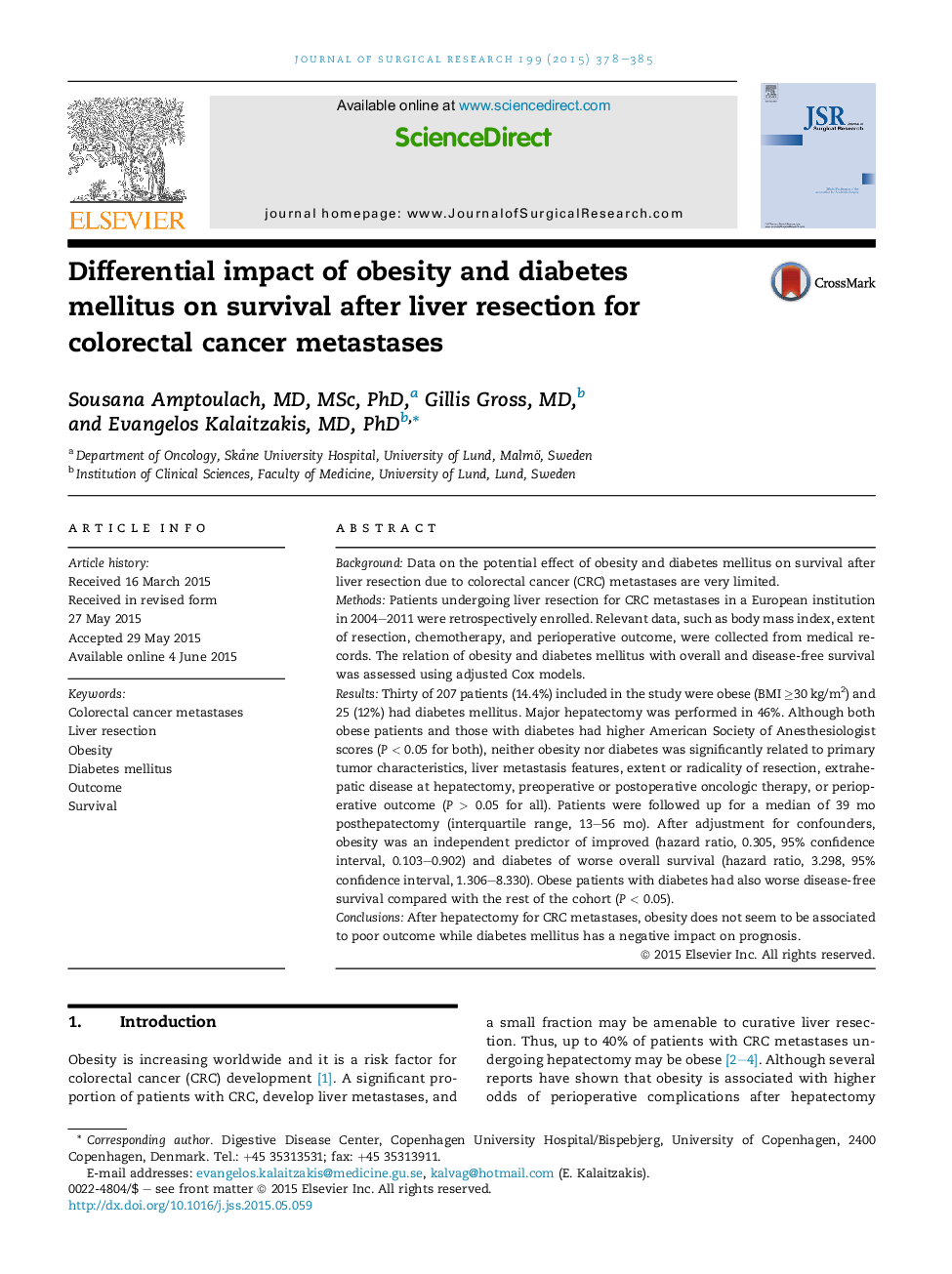| کد مقاله | کد نشریه | سال انتشار | مقاله انگلیسی | نسخه تمام متن |
|---|---|---|---|---|
| 6253492 | 1288395 | 2015 | 8 صفحه PDF | دانلود رایگان |
BackgroundData on the potential effect of obesity and diabetes mellitus on survival after liver resection due to colorectal cancer (CRC) metastases are very limited.MethodsPatients undergoing liver resection for CRC metastases in a European institution in 2004-2011 were retrospectively enrolled. Relevant data, such as body mass index, extent of resection, chemotherapy, and perioperative outcome, were collected from medical records. The relation of obesity and diabetes mellitus with overall and disease-free survival was assessed using adjusted Cox models.ResultsThirty of 207 patients (14.4%) included in the study were obese (BMI â¥30 kg/m2) and 25 (12%) had diabetes mellitus. Major hepatectomy was performed in 46%. Although both obese patients and those with diabetes had higher American Society of Anesthesiologist scores (P < 0.05 for both), neither obesity nor diabetes was significantly related to primary tumor characteristics, liver metastasis features, extent or radicality of resection, extrahepatic disease at hepatectomy, preoperative or postoperative oncologic therapy, or perioperative outcome (P > 0.05 for all). Patients were followed up for a median of 39 mo posthepatectomy (interquartile range, 13-56 mo). After adjustment for confounders, obesity was an independent predictor of improved (hazard ratio, 0.305, 95% confidence interval, 0.103-0.902) and diabetes of worse overall survival (hazard ratio, 3.298, 95% confidence interval, 1.306-8.330). Obese patients with diabetes had also worse disease-free survival compared with the rest of the cohort (P < 0.05).ConclusionsAfter hepatectomy for CRC metastases, obesity does not seem to be associated to poor outcome while diabetes mellitus has a negative impact on prognosis.
Journal: Journal of Surgical Research - Volume 199, Issue 2, December 2015, Pages 378-385
